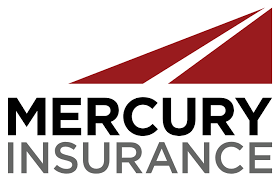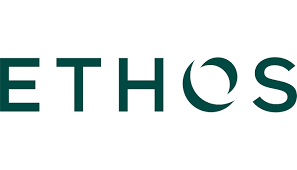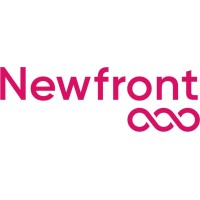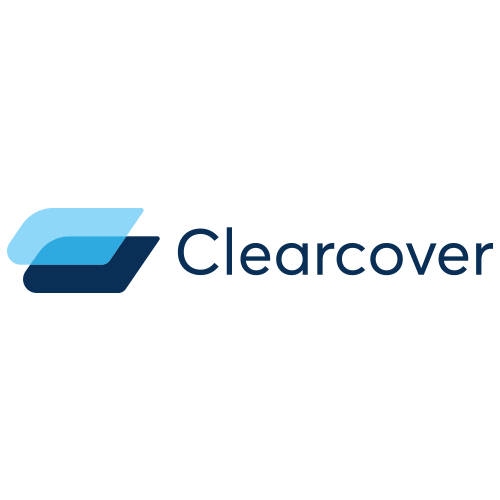

With the advent of the internet and advances in many other technologies, there have been many improvements in various industries. The insurance industry is no exception. One of the major innovations in insurance is insurtech, short for insurance technology.
Insurtech is the use of various technologies to make significant improvements in the way insurance and insurance products are managed and delivered. Some of the technologies that make up insurance technology are artificial intelligence (AI), machine learning, the Internet of Things (IoT), blockchain, and big data analytics. Thanks to insurtech, insurance providers and customers get to enjoy several benefits, which can include:
A startup company earns the status of “insurtech unicorn” if it’s able to raise a substantial amount of money in its venture capital (VC) funding round. The money they raise often comes from the world’s top VC investors.
The main requirement for insurtech companies to be called a “unicorn” is to raise $1 billion in capital or reach a valuation equal to $1 billion. When a startup achieves this feat, it becomes a rare and unusual beast, called an insurtech unicorn.
Here’s a video that discusses the basics of insurtech and insurtech companies. Get to know why these types of companies have become a rapidly disrupting trend in the insurance space:
While the $1 billion valuation enables a company to count itself among the top insurtech unicorns, what truly sets it apart in the insurance industry is what it offers. Compared to traditional insurers that support them, insurtech companies have caused a much-needed shakeup of the traditional business model and age-old practices in insurance.
With these insurtech companies, gone are the days of massive call centers, voluminous paperwork, and cumbersome claims processes. Because of the innovation they bring -- lean, data-driven businesses powered by automation, AI, and personalized customer experiences, the improvements in insurance are enormous. Insurtech unicorns are turning an antiquated industry plagued by complexity and inefficiency on its head.
What is also notable is how insurtech companies addressed the pain points that have frustrated consumers for decades, including delayed claims, lack of transparency, and rigid policies. These companies studied these issues and designed solutions to address them. Instead of simply digitizing existing processes, insurtech companies have reimagined insurance from the ground up.
As of 2024, there are now 1,500 insurtech companies in the US, and 25 of these are insurtech unicorns. This is a significant and remarkable increase after only a few years, considering that in 2019 there were only 494. This increase is also notable, despite the halving of funding specifically for insurtech companies during the first half of 2024.
The US still has the lion’s share of these unicorns, being home to 760. In addition, the US holds 61% of the total value of new insurtech unicorns, amounting to $25 billion. The highest concentration of unicorns in the US are in the San Francisco Bay area, which is home to 190 of these startups.
Could you be an owner or partner of one of the over 1000 insurtech insurance companies in the US and successfully transform it into a unicorn? If you ever get the opportunity, here’s the list of top insurtech companies in the US that have attained unicorn status: 
Founded in 2015, Lemonade is an insurtech company that offers a range of insurance products. They offer homeowner’s insurance, renter’s insurance, car insurance, pet insurance, and term life insurance. Their unique selling proposition is that of utilizing AI to make claims processing more efficient. New Yorkers should appreciate Lemonade’s products and services, since NY ranks second among the most expensive states for auto insurance.
Valuation: $4.5 billion
Founders: Daniel Schreiber, Shai Wininger, Ty Sagalow
Major investors: Allianz, Softbank, Sequoia Capital, General Catalyst, Thrive Capital

Next Insurance describes itself as a “leading insurtech unicorn that focuses on providing digital solutions for small businesses.” They provide coverage like general liability, professional liability, and workers’ compensation insurance – all via their digital platform. The business was founded in 2016 in Palo Alto, California.
Valuation: $4 billion
Founders: Guy Goldstein, Alon Huri, Nissim Tapiro
Major investors: Munich Re, Nationwide, American Express Ventures

Mercury Insurance is probably one of the few insurtech unicorns that is an outlier in this category. Mercury is primarily an insurance company specializing in business, home, and auto insurance, although it has taken steps to modernize its product offerings and the manner in which they are delivered. Mercury recently partnered with Tokio Marine America to take on TMA’s personal lines business in California. The plan also includes migrating their clients to a digital platform.
Valuation: $3 billion
Founders: George Joseph
Major investors: Mutual funds, individual investors, investment firms

Insurtech unicorn Doma is a major player on the real estate front. The firm specializes in offering title insurance that ensures greater transparency for real estate agents, home sellers, and home buyers. Doma uses machine learning to streamline the transaction process in real estate. This can significantly reduce associated costs for homeowners, mortgage lenders, and real estate companies.
Valuation: $3 billion
Founders: Max Simkoff
Major investors: Fifth Wall Ventures, General Catalyst, Lennar Corporation

With offices in San Francisco, Ethos specializes in offering life insurance, with a more straightforward and simplified application process. What’s unique about Ethos’ products is that their life insurance offerings do not require a medical examination and boast a completely digital application process. Their focus is on providing life insurance that does away with the tedious, time-consuming application process and obtain coverage quickly.
Valuation: $2.7 billion
Founders: Peter Colis, Lingke Wang
Major investors: Accel, Sequoia Capital, Softbank

Founded in 2017, Newfront is a modern insurance company that uses different technologies to enhance insurance coverage for individual clients and businesses. Headquartered in San Francisco, the insurtech unicorn prides itself in delivering essential products like risk management, retirement solutions, and employee benefits. These products combine advanced tech and personalized service.
Valuation: $2.2 billion
Founders: Spike Lipkin, Gordon Wintrob
Major investors: Founders Group, B Capital Group, Goldman Sachs, Meritech Capital

Headquartered in NYC and founded in 2012, Oscar Health offers individual and family health insurance plans. The company puts emphasis on combining personalized care, transparency, and advanced technology. Customers can have access to a user-friendly mobile app, telemedicine services, plus a dedicated team to assist them in getting the best health outcomes.
Valuation: $1.6 billion
Founders: Josh Kushner, Mario Schlosser, Kevin Nazemi
Major investors: Google Ventures, Fidelity Management & Research Company

This insurtech company was founded in 2015 in Palo Alto, California. And this is good for California residents, since they’ll need as many home insurance providers for wildfires as they can get. Hippo Insurance’s specialty is providing highly customizable and affordable homeowners' insurance via a technology-driven platform. Hippo is a pioneer in offering proactive insurance that covers leaks, fires, breaks, and other disastrous events to reduce claims. Hippo is now one of the largest home insurance providers in the US, covering over 200,000 homes in 39 states.
Valuation: $1.5 billion
Founders: Assaf Wand, Eyal Navon
Major investors: Mitsui Sumitomo Insurance, Comcast Ventures, Lennar Corporation

Clearcover specializes in car insurance. This company is a digital car insurance company that leverages data analytics and other technologies to provide customers with the best prices possible. This insurtech unicorn was founded in 2016 and is based in Illinois. Its main thrust is to simplify the process of buying a policy while also providing cheap car insurance.
Valuation: $1.3 billion
Founders: Kyle Nakatsuji
Major investors: Accel Partners, Coatue Management, Sozo Ventures

Extend is headquartered in San Francisco and was founded in 2019. This insurtech unicorn focuses on enabling retailers to seamlessly provide their customers with extended warranties and protection plans for their purchases. What’s unique about their API-first platform is that it uses machine learning to give optimized warranties in real time and improve conversion rates for retailers.
Valuation: $1 billion
Founders: Joe Moss, Rohan Shah, Woodrow H. Levin, Michael Darmousseh
Major investors: American Express Ventures, Hanaco Ventures, Reach Capital

Based in Covina, California, Sidecar Health is an insurtech company that provides customizable and affordable health insurance plans. Their business model works by allowing members to pay for medical expenses out-of-pocket and get reimbursed later. Sidecar Health focuses on affording transparency in healthcare costs and allowing their customers to choose their healthcare providers and services without the burdensome procedures of traditional health insurance providers.
Valuation: $1 billion
Founders: Patrick McFarland
Major investors: Founders Fund, Social Capital

Since 2016, this Chicago-based insurtech company has provided simple, customizable, and affordable home insurance. Kin Insurance aims to cover hard-to-insure events like freak weather occurrences that damage homes. Their home insurance products are designed for those who live in high-risk areas for disasters occurring due to climate change. Kin Insurance emphasizes using a digital platform to cut costs and make their insurance more affordable compared to traditional insurers.
Valuation: $1 billion
Founders: Sean Harper, Lucas Ward, Sebastian Villareal
Major investors: Hudson Structured Capital Management, Commerce Ventures, Flourish Ventures, QED Investors
Due to increasing demand for personalized service through digital solutions and other factors like regulatory changes, increased investment, and the pressure to reduce costs, the insurtech segment is expected to grow significantly. The compound annual growth rate (CAGR) of insurtech is pegged at around 41% by the year 2032 and valued at $336.5 billion by then. So, we can likely expect exciting times ahead for Insurtech companies in the US.
If you’d like to get data on insurtech companies and other relevant information, bookmark our Best in Insurance section. You can also check out our special report on the Best Insurtech companies in the world and get more data on this segment.
Did you find this piece on insurtech unicorns in the US informative? Let us know in the comments.
